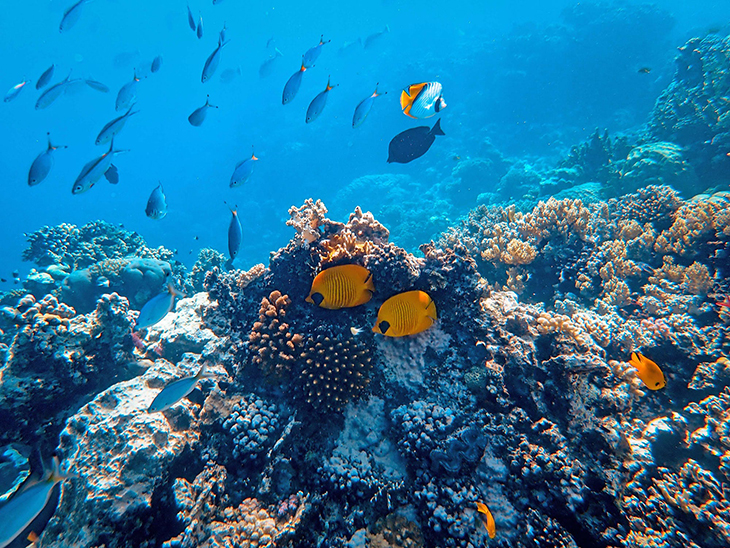
Over the past four decades, a collection of data gathered from a remote coral reef within Palau’s territorial waters has revealed a surprising and hopeful trend; that corals possess an impressive capacity to adapt to warming oceans.
Contrary to earlier beliefs, these underwater ecosystems have not only demonstrated adaptability but have done so at an impressive rate of 0.18°F per decade. As a result, researchers argue that existing coral bleaching events should be revised to explain that these phenomenal ecosystems have the ability to sustain themselves over the course of decades.
This groundbreaking study, spearheaded by Newcastle University, centered its attention on the Pacific Island nation of Palau. Drawing upon decades of field observations and a multitude of potential future coral bleaching scenarios, each reflecting a different simulated rate of thermal tolerance enhancement, the researchers came to a crucial conclusion. If coral thermal tolerance continues to rise throughout the 21st century, at the most likely historical rate that was observed, then the potential for a “significant” reduction in bleaching impacts are actually possible.
Study lead author, Liam Lachs, said, “We quantified a natural increase in coral thermal tolerance over decadal time scales which can be directly compared to the rate of ocean warming.”
The study authors also say that high-frequency bleaching can be fully eased at particular reefs that have low-to-middle emissions scenarios, such as those where the Paris Agreement commitments are fulfilled.
Study co-author, Dr. James Guest, explained, “We know that coral reefs can increase their overall thermal tolerance over time by acclimatization, genetic adaptation, or shifts in community structure, however we know very little about the rates at which this is occurring.”
“This study uses data from a remote Pacific coral reef system and estimates the rate of increase in tolerance since the late 1980s. The results provide some hope that reefs can keep up with increasing temperatures, but only if strong action is taken on climate change,” he adds.
Coral communities face a daunting challenge in the era of climate change, one characterized by increasingly intense and frequent marine heatwaves. The researchers also point out the importance of enhancing the ability of coral ecosystems to endure these environmental stressors as a key strategy for their survival.
Delving into the specifics of their discoveries, the Newcastle team’s research suggests that the thermal tolerance of corals in Palau has experienced an impressive increase of approximately 0.1°C per decade since the late 1980s. Such a substantial uptick implies the involvement of natural mechanisms, including genetic adaptation, acclimatization of corals, or even changes in their symbiotic microalgae, which could collectively contribute to the enhancement of coral thermal tolerance.
In the broader context of climate change and ecological dynamics, it’s worth noting that several early models and predictions have been revised in light of new research findings. This includes reassessing the impact of ruminant agriculture on greenhouse gas emissions and reevaluating the extent of plastic pollution entering the ocean, which has recently been suggested to have been overestimated by a factor of 30.
While some scientists are actively exploring the potential for corals to adapt to changing conditions, others are taking a proactive approach. Researchers in Florida, for instance, are engaged in the selective breeding of corals that show genetic adaptations rendering them less vulnerable to the threats of both rising temperatures and increasingly acidic waters.
These efforts represent an inspiring testament to human innovation and determination to safeguard these vital marine ecosystems.
What are your thoughts? Please comment below and share this news!
True Activist / Report a typo


